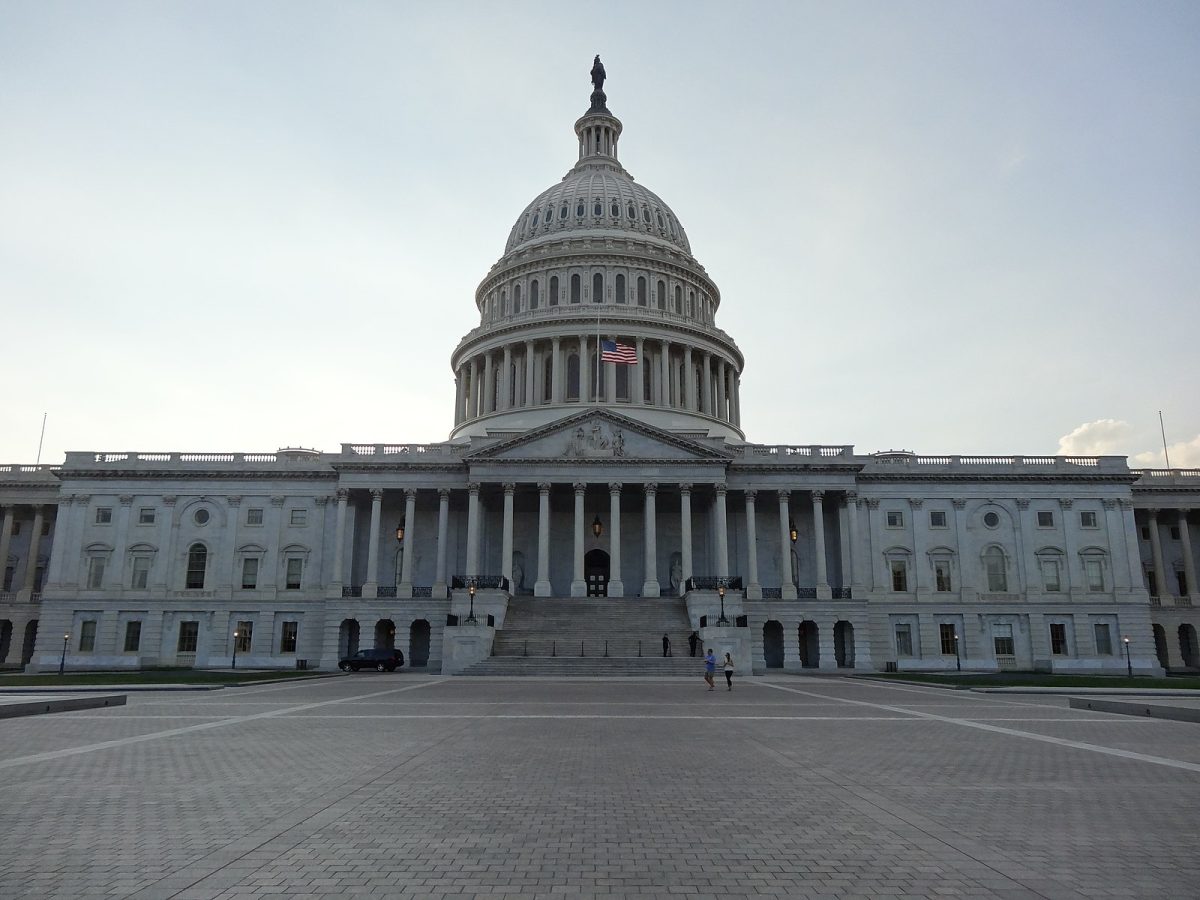A Clarke Forum event on March 26 featured short speeches, questions from the audience and a panel discussion to cover the major shift in U.S. foreign policy under the Trump administration. From grocery prices in Carlisle to the conflicts of Western Asia, U.S. foreign policy has undergone its greatest series of changes since the end of World War II.
The first panelist was Professor Andrew Wolff, Associate Professor of Political Science and International Studies. His opening talk, based on his expertise in European Security, focused on the question of who the new administration viewed as America’s primary adversary. Given the administration’s claim to end the Russian invasion of Ukraine on early in the adminsitration, and the talk happened more than two months and four days later. Europe is no longer a priority for the Trump administration. President Trump has frozen a cost-saving measure to transfer equipment to the Ukrainian army instead of expensive decommissioning. The administration has also cancelled intelligence support to the Ukrainians. Wolff stated that the new administration may be prioritizing China over Russia as an adversary, despite providing aid to Israel resulting in the killing of civilians. Wolff believes that this shift in policy focus is ultimately going to materialize inconsistently to begin with, and the main change is in speed.
Professor Fatou Thioune covered the economic aspects of the administration’s policy shifts. She acknowledged that firms usually mitigate tariffs through price hikes on consumers. Steel as a domestic industry will be protected, which will negatively affect products that contain steel, such as cars, which are now subjected to their own tariffs. A separate prediction is that Indonesia has been subjected to a tariffs under the new ‘liberation day’ announcement, it is probable that the price of electric vehicles such as Teslas will increase because of dependence on foreign nickel. Developing countries will be hard hit by lack of access to the demand for their products in wealthy countries, especially when combined with the lack of the support from USAID. A study found that U.S. GDP growth will decrease by 0.25%, a major shock to a developed economy which normally grows between 2-3% per annum. When extrapolated to the whole economy, such a decrease totals 45 billion dollars, and could even escalate to a decreased GDP by 0.3%.
Former State Department diplomat Dr. Magda Siekert elaborated on the problems with shutting down USAID beyond the problems to countries’ growth. A variety of projects will be cancelled, including Earthquake relief in Morrocco, Egypt’s hydraulic infrastructure, extremism-countering education programs in Tunisia and anti-AIDs initiatives. The already unstable Middle East and North African regions will become more fertile ground for extremism given the increase in desperation of local populations. An additional problem is the harm to the foreign image of the U.S., with Voice of America and Middle East Broadcast being subjected to cuts, leading the United States to be increasingly associated with violence. The geopolitical objectives the new administration is pushing will increase instability in the region. Trump wants toremake Gaza into a resort, which worsens the willingness of the Gulf States to cooperate with the United States. He has also announcedsanctions on Chinese oil imports, which gives Beijing and Moscow greater regional leverage. Finally, because the administration is led by the same president who removed the Joint Comprehensive Plan Of Action (JCPOA), better known as the Iranian Nuclear deal, his reputation will harm future negotiations. As Siekert concluded, violent solutions are not going to work and only a massive negotiation may bring peace.
Finally, Professor Russ Bova gave what he described as the 10-minute version of his upcoming class about the Russo-Ukrainian War and its geopolitical fallout. Since the United States is now focusing its resources on Asia, American support for European security will diminish. The new administration has made several false claims, including accusing Ukrainian president Zelenskyy of being a dictator and accusing Ukraine of starting the warl. The new special envoy for the Russia-Ukraine War said ‘I like Putin’ and that ‘he prayed for Trump’, indicating that the envoy may have ulterior motives to confronting an authoritarian who started a war. The U.S. also joined longtime enemy North Korea in voting against a United Nations General Assembly condemning Russia.





